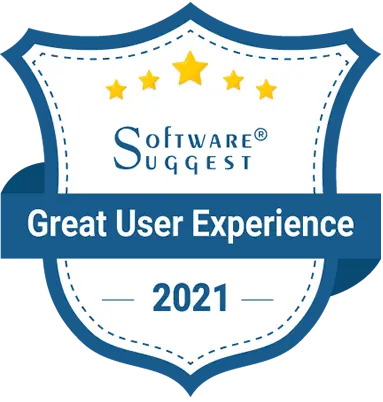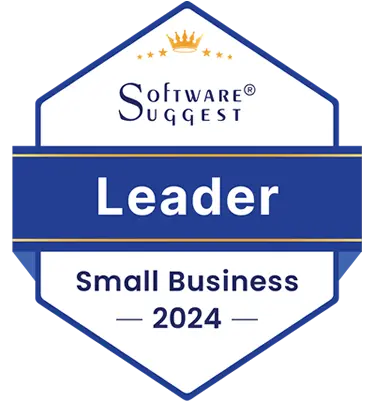In today's fast-paced digital landscape, establishing a strong online presence is paramount for any business aiming to thrive in the competitive market. An online business portal serves as the virtual gateway to your brand, offering a seamless and engaging experience for both customers and partners. In this article, we'll explore the key elements and strategies involved in setting up a successful online business portal. In the digital age, launching an e-commerce business is a gateway to unlimited opportunities, allowing entrepreneurs to reach a global audience and maximize their market potential. Building a successful online shop requires a strategic and well-thought-out approach. Here's a comprehensive guide to help you navigate the intricacies of establishing and growing your e-commerce venture.
1. User-Friendly Interface: The first impression is crucial, and your online business portal should captivate visitors from the moment they land on your page. Invest in a clean, intuitive, and user-friendly interface that ensures effortless navigation. Implement a responsive design to cater to users across various devices, providing a consistent and enjoyable experience.
2. Compelling Content: Content is king, and your online portal should be a treasure trove of valuable information. From engaging product descriptions to insightful blog posts, high-quality content establishes your authority in the industry. Use a mix of visuals, videos, and written content to convey your brand story, product features, and benefits. Regularly update your content to keep it relevant and enticing.
3. Seamless E-commerce Integration: If your online portal involves selling products or services, seamless e-commerce integration is non-negotiable. Ensure a secure and efficient payment gateway, user-friendly shopping cart, and a straightforward checkout process. Prioritize user convenience and provide multiple payment options to enhance the overall shopping experience.
4. Robust Security Measures: Building trust is paramount in the digital realm. Implement robust security measures to safeguard user data and transactions. SSL certificates, secure payment gateways, and compliance with data protection regulations are essential components. Clearly communicate your commitment to data security, reassuring users that their information is in safe hands.
5. Personalized User Experience: Customization is key in creating a memorable online experience. Implement personalization features based on user preferences, purchase history, and behavior. Tailored recommendations, personalized dashboards, and targeted marketing campaigns enhance user engagement and foster a sense of connection with your brand.
6. Mobile Optimization: With the increasing reliance on smartphones, mobile optimization is no longer optional. Ensure that your online business portal is fully optimized for mobile devices, offering a seamless and responsive experience. Mobile users should have access to all features and functionalities without compromising on speed or design.
7. Social Media Integration: Harness the power of social media by seamlessly integrating your online business portal with popular platforms. Social media buttons, sharing options, and real-time updates can enhance user interaction and expand your brand's reach. Leverage social media marketing strategies to drive traffic to your portal and foster a vibrant online community.
8. Analytics and Insights: In the digital landscape, data is a goldmine. Implement robust analytics tools to gather insights into user behavior, preferences, and trends. Utilize this information to refine your strategies, optimize user experience, and make data-driven decisions to stay ahead of the competition.
9. Customer Support and Feedback Mechanism: Prompt and efficient customer support is a cornerstone of a successful online business portal. Implement live chat, email support, and comprehensive FAQs to address user queries. Additionally, provide avenues for user feedback, encouraging customers to share their experiences and suggestions for improvement.
10. Continuous Improvement: The digital landscape is ever-evolving, and your online business portal should evolve with it. Regularly assess and update your portal to incorporate the latest technologies, design trends, and user expectations. Stay abreast of industry developments to position your brand as a forward-thinking and innovative player.
Understanding Your Niche
Identifying a niche is crucial for standing out in the competitive e-commerce landscape. Research market trends, analyze consumer behavior, and pinpoint a gap you can fill with your products or services. A niche-focused approach helps define your target audience and tailors your offerings to meet specific needs.
Choosing the Right Platform
Selecting the right e-commerce platform is the foundation of your online business. Popular platforms like Shopify, WooCommerce, and Magento offer user-friendly interfaces, customizable templates, and secure payment gateways. Assess your business requirements, scalability, and budget to choose a platform that aligns with your goals.
Designing a User-Friendly Website
A visually appealing and user-friendly website is crucial for retaining visitors and converting them into customers. Invest in a clean, responsive design that ensures seamless navigation across desktop and mobile devices. High-quality images, compelling product descriptions, and intuitive interfaces enhance the overall user experience.
Securing Your E-commerce Site
Building trust is paramount in the online realm. Ensure your e-commerce site is secure by implementing SSL certificates for encrypted transactions. Clearly display privacy policies, terms of service, and return policies to instill confidence in your customers. Regularly update your website's security measures to protect against potential threats.
Streamlining the Checkout Process
A cumbersome checkout process can lead to cart abandonment. Simplify the checkout steps, offering guest checkouts and multiple payment options to cater to diverse customer preferences. Implement a transparent and straightforward process to enhance the overall customer experience.
Leveraging Social Media
Harness the power of social media to amplify your online presence. Create engaging content and share it across platforms like Instagram, Facebook, and Twitter. Utilize social media advertising to target specific demographics and drive traffic to your e-commerce site. Encourage customer interaction through comments, likes, and shares.
Implementing SEO Strategies
Optimizing your website for search engines is essential for attracting organic traffic. Conduct keyword research to identify relevant terms in your niche. Incorporate these keywords into product descriptions, meta tags, and URLs. Regularly update content and engage in link-building activities to improve your site's search engine ranking.
Building an Email Marketing Strategy
Email marketing remains a powerful tool for customer retention and conversion. Build a subscriber list by offering incentives such as discounts or exclusive content. Segment your audience to deliver personalized content and targeted promotions. Use email campaigns to announce new products, share updates, and re-engage with past customers.
Monitoring Analytics and Adjusting Strategies
Regularly monitor website analytics to gain insights into customer behavior, popular products, and conversion rates. Use this data to refine your marketing strategies, optimize product offerings, and improve the overall performance of your e-commerce site. Stay adaptable and be willing to adjust your approach based on real-time data.
A really long time prior, making a site was emphatically not a direct undertaking, particularly for somebody who wasn't instructed and didn't have the foggiest idea how to code. These days, notwithstanding, anybody with a PC and web alliance can send off an eCommerce business inside only minutes, all appreciation to current instruments and site trained professionals.
In any case, you need to pick two or three things prior to setting up your webshop matters like what you will offer, how to oversee transport and divides, and explicitly what showing frameworks to utilize.
Follow each little advance in turn online store building guide and you figure out some method for beginning an eCommerce site rapidly with next to no preparation.
Wrap up what you truly need to sell
Pick among re-appropriating and selling your own things
Pick the specific things to sell
Ponder a business name
Assembling and set up an electronic store
Set up segment strategies
Market your online store
End
You have a All-in-One E-Commerce Powerhouse! Are you ready to take your online business to unprecedented heights? Meet Myonlinestore – the ultimate e-commerce solution designed to empower entrepreneurs, small businesses, and enterprises with a seamless and feature-rich online selling experience. Buckle up as we unveil a game-changing tool that will revolutionize the way you do e-commerce.
Simple, it‘s a user friendly and advanced online store builder which really doesn’t need any intro. Wix used to be the online ecommerce website builder.
Shopify's inconceivably open and is jam-pressed loaded with helpful elements. They give essentially all that you might actually have to run and deal with your internet business.
Reasonable, easy to use and element pressed Shopify is the most well known web-based store manufacturer for new companies and independent ventures that need to get fully operational rapidly.
BigCommerce is a multichannel-centered internet based store manufacturer that consistently incorporates with Amazon, eBay, Google Shopping, Facebook, Pinterest, Instagram and different deals channels. BigCommerce is very easy to use and offers a lot of all set plans, so you can without much of a stretch dispatch a store inside a couple of hours.
I hope the above mentioned info will help you out with your decision making on the setting up a webstore.
Building a successful e-commerce business and create web store is a journey that requires dedication, strategic planning, and ongoing adaptation to industry trends. By understanding your niche, choosing the right platform, designing a user-friendly website, and implementing effective marketing strategies, you can create a thriving online shop that captivates customers and stands the test of digital evolution. Embrace the opportunities, stay innovative, and watch your e-commerce business flourish in the ever-expanding online marketplace. In conclusion, the establishment of a successful online business portal requires a strategic blend of user-centric design, compelling content, and cutting-edge technology. By prioritizing user experience, security, and innovation, your portal can become a powerful tool for driving growth and establishing a formidable presence in the digital marketplace.




Our clients' success stories speak volumes. Their testimonials highlight our dedication to delivering quality, reliability, and affordability. With a proven track record of satisfied customers across multiple industries, you can trust that our software services are not only best-in-class but also designed to fit your budget without compromising on quality. Let us help you achieve your business goals affordably and efficiently!